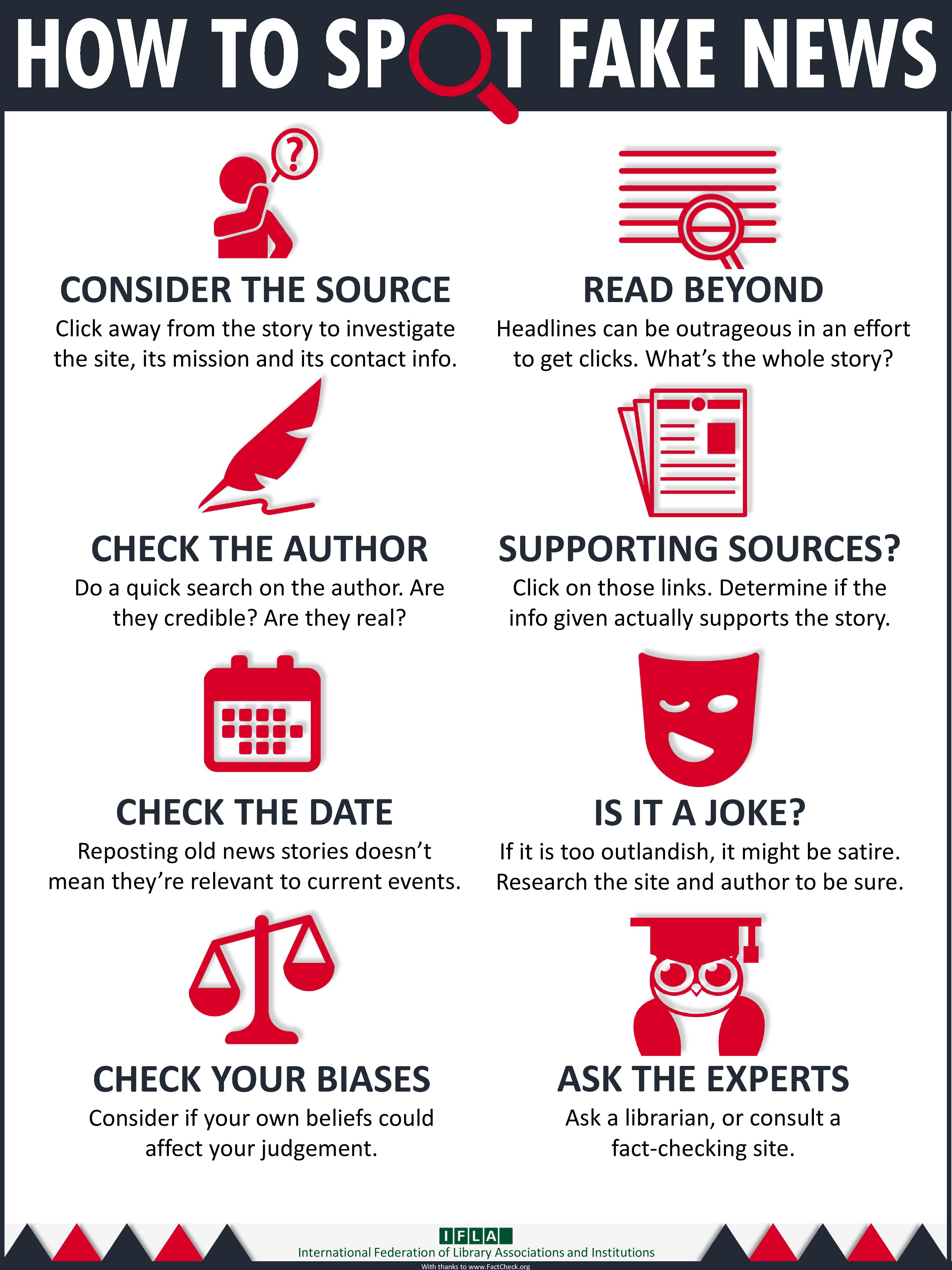Methods and Criteria
There are many different methods and criteria for evaluating resources. Below are two summaries of librarian-developed methods. For more evaluation prompts, as well as information about the creation of the methods, follow the link to the original (bottom right of the respective section).
ACT UP Method
Author
- Who wrote the resource?
- What are their qualifications?
- Have they been reported as a source of fake news?
Currency
- When was the resource published / posted?
- If online, when was the last time the website was updated / post was edited?
Truth
- Is the resource accurate and reliable?
- Are there typos and spelling mistakes?
- Can the claims be verified?
- Follow the rule of three: you should be able to back up claims in at least three of their other sources.
Unbiased
- There is no such thing as unbiased. We all have biases.
- Look for resources that are impartial.
- Who funded the research? Follow the money.
Privilege
- Publishing favors white male scholars and researchers. This impacts the perspectives available in any given field.
- Who is missing from the research conversation / discourse?
CRAAP Method
Currency
- When was it posted?
- Was it posted somewhere else first?
- Has it been revised or edited?
- Do links work?
Relevance
- How does the information given relate to the topic?
- Who is the intended audience?
Authority
- What is the source?
- What are its credentials?
- What is its source of funding?
Accuracy
- Is it free from error?
- Does it cite its sources?
- Can the information be corroborated / is it peer-reviewed?
Purpose
- Is the information meant to teach, sell, entertain, or persuade?
- Is it a joke / satire?
- Are there political, ideological, cultural, religious or other biases?
Method developed by Sarah Blakeslee
California State University, Chico
Websites and Browser Extensions
Below is a list of websites dedicated to fact checking. Despite this, these websites contain errors and biases. Don't rely entirely on them!
Similarly, these browser extensions contain errors and biases. Always double-check!
- Media Bias/Fact Check (Chrome(Opens in a new window) and Firefox)
- The Factual (Chrome)
- BS-detector (Firefox)
- NewsGuard (paid subscription)
- TrustServista (paid subscription)


